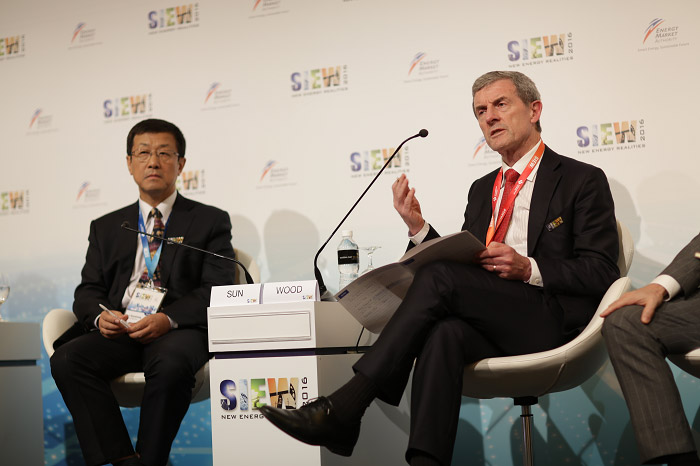
By Tay Kai Soon
“Collaboration is the key of this session”, said Pål Rasmussen, Secretary General, International Gas Union. “Whether that is working or not is very hard to measure”. Speaking at the Unlocking Options – Global Collaboration on Energy Access panel at Singapore International Energy Week (SIEW), Rasmussen highlighted air quality as an area in which collaboration can play a key role.
An estimated 3.7 million people die each year due to poor urban air quality, according to the World Health Organisation. The sharing of urban air quality reports, conversion of energy sources to gas, and other measures help improve this figure. Yet there is still a long way to go. Ramussen called on the renewables and gas industries to stop working in silos and to start sharing expertise and resources for greater impact.
Akash Gupta, Under Secretary, Investments Technology Promotion and Energy Security Division, Ministry of External Affairs, India, also called for global agencies to avoid duplicating efforts. Consistent coordination and thoughtful implementation would help to resolve worldwide challenges such as energy access. He shared three interesting examples of such collaborative efforts in India that help to implement energy access solutions.
The first is capability building programs such as Barefoot College. Barefoot College, which was started by an Indian entrepreneur, trains people living in rural areas to install and maintain solar installations in their homes. “Today, the trainees of Barefoot College span across 1,300 villages in almost 80 countries in the world,” said Gupta. As a result, 500,000 more people now have lights in their homes.
Secondly, the Indian government requested for volunteers to give up their cooking gas subsidies. This led to savings of almost US$500 million per year – funds that were redirected to energy access initiatives serving rural households.
The last is the LED revolution in India, in which the government aims to distribute 700 million LED bulbs by the end of next year. This will ultimately result in lower electricity bills for households.
In addition to collaboration and the role of the public sector, the private sector must also be involved. Liu Hongpeng, Chief, Energy Section, United Nations (UN) Economic and Social Commission for Asia and the Pacific (ESCAP) highlighted the need to match private sector funds to the places that require energy access the most. Traditionally, private companies are concerned with the profitability and risks involved in providing energy access to rural areas. Governments must consider the policy needed to stimulate private sector investment, as Public Private Partnership is needed to support local communities and joint ventures.